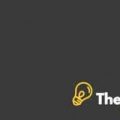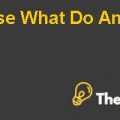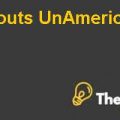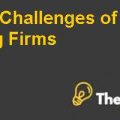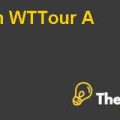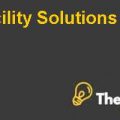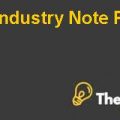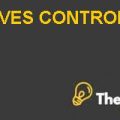Jim Sharpe Case Study Solution
Question 5:
Deal Structure:
Jim Sharpe purchased the company through an asset deal instead of stock purchase deal. If he used the stock purchase deal through the book value of owner’s equity then there were no difference occurred in the deal. But if, Jim Sharpe used the stock purchase deal through multiplying the number of shares to its market price or by calculating the dividend yield, price earnings ratio and earnings per share, then the difference might occur in the deal structure.
As we know that Jim Sharpe used the seller note to finance the partial amount of acquisition, and due to the high sensitivity of this seller note upon the acquisition of the Press Alloys, Inc. Jim Sharpe might face the huge problems. Because in future if Jim Sharpe will fail to pay the amount on time, the seller will get back his company.
There are some other restrictions made by the seller upon Jim Sharpe is that, Jim Sharpe cannot buy another company until the debt has been recovered and paid to the seller. Jim Sharpe cannot take too much salary from the profits of the business until or unless the debt has been fully recover. In addition to this, Jim Sharpe has to cover the sellers and its family’s five year medical insurance. The past owner of the company will remain the consultant of the new company taken by the Jim Sharpe in order to look after that all the conditions are fulfilling or not. In case of any wrong happen to the business or above mentioned conditions, the seller will get back his company.
Question 6:
Financing of Acquisition:
Jim Sharpe finance its acquisition by taking the loan of amounting $ 510,000 through bank loan term, $ 100,000 from his savings, $ 141,000 from the receivable revolving, $ 56,000 from the inventory revolving and remaining around $ 1,200,000 by taking the seller note. These calculations are mentioned in the Appendix 2.
Question 7:
Day One at Press Alloys, Inc.:
Jim Sharpe knows that the company has a lots of issues which cannot be addressed in a couple of minutes, so, at his first day Jim Sharpe knows that he needs to gain the trust of the employees because first of all, they do not knows that who is the new owner of the company and the nature and abilities of this new owner. Secondly, there might be possibility that the employees and managers of the company do not want the change in the operations and in fact in the owner of the company. So, here the first and foremost things which can do by Jim Sharpe,is to introduce him in front of the employees in a very pleasant and motivating manner.
Questions to be addressed:
He should address the question regarding to get the knowledge about the people that are working here, he can also asked about the current operational system from employees. He can addressed that in his ownership employees will feel a very comfortable and flexible working environment with more and better benefits that they have experienced in their past.
First Month action plan at Press Alloys, Inc.:
After the things that he had done in his first day, the first month action plan should be to call the general meeting. In which Jim Sharpe will invite to everyone and explain them about his business plan and about the company’s detailed vision and mission and its goals. He should also talk about his way of management, his future targets and hopes from the employees and the future financial position of the company.
Six Month action plan at Press Alloys, Inc.:
In order to turn the company’s losses into profits, Jim Sharpe needs to make the action plan for six months to understand the main reasons for these problems and to make the detailed solutions for them.
As we know that the main issue in the Press Alloys, Inc. is the mismanagement, inappropriate working conditions and de-motivated workforce. So, in his first six months, Jim Sharpe needs to be involved in his labor workforce and try to motivate them in order to get the maximum output. He should try to create the motivational working environment in order to keep the employees satisfied.
Question 8:
Jim’s Top Priority:
Based on this deal structure, Jim Sharpe’s top priority is to earn the profits in order to repay the seller note on time; otherwise the seller will get back his company.
Appendix 1:
| Schedule 1 | ||
| Jim Sharpe: Extrusion Technology, Inc. | ||
| Jim Sharpe/Press Alloys | ||
| Range of Values Worksheet | ||
| Book Value | Stockholder’s Equity | $ 704,000 |
| Adjusted Book Value | Market Value of Assets | $ 637,000 |
| Lease Equipment | $ 47,000 | |
| liabilities | $ 344,000 | |
| Adjusted Book Value | $ 340,000 | |
| Earnings Multiple (1988) | EV/EBITDA | 3.83 |
| Other Valuation Methods | ||
| Enterprise value multiple (1988) | EV/Sales multiple | 0.44 |
| Equity Value Multiples | Equity Value / Book Value | 0.89 |
Appendix 2:
| Schedule 2 | |||
| Jim’s Bid | $ 2,000,000 | ||
| Source of Funding | Base Amount | Rate | Amount Available |
| Accounts Receivable | $ 351,000 | 0.75 | $ 263,250 |
| Inventory | $ 156,000 | 0.5 | $ 78,000 |
| Total Available from Line of Credit (B+C) | $ 341,250 | $ 341,250 | |
| Amount drawn at closing on revolver | $ 197,000 | $ 197,000 | |
| Asset-based Term Loan | $ 510,000 | 0.8 | $ 408,000 |
| Seller Note | $ 700,000 | $ 700,000 | |
| Seller non-compete | $ 540,000 | $ 540,000 | |
| Purchaser’s Equity | $ 100,000 | $ 100,000 | |
| Total Funds Available | $ 1,405,000 | ||
| Shortfall | $ 595,000 | ||
Appendix 3:
| Sensitivity | |
| To Loan | 29% |
| To Seller Note | 50% |
| To Line of Credit | 24% |
Appendix 4:
| Projected Available Excess Cash After Servicing Total Obligations in Each of the First Six Years | ||||||
| Years | 1 | 2 | 3 | 4 | 5 | 6 |
| Cash Generated | 119 | 120 | 168 | 260 | 325 | 495 |
| Obligations: | ||||||
| Capital Expenditure | 40 | 40 | 40 | 40 | 40 | 40 |
| Cash Available (Excess) | 79 | 80 | 128 | 220 | 285 | 455 |
Appendix 5:
| Year of Retiring the Seller Note | ||||||
| Years | 1 | 2 | 3 | 4 | 5 | 6 |
| Cash Available (Excess) | 79 | 80 | 128 | 220 | 285 | 455 |
| Remaining Amount | 621 | 541 | 413 | 193 | -92 | |
| NOTE: At the 5th year after taking the loan the Jim's will be able to repay all of its debt through seller note. | ||||||


